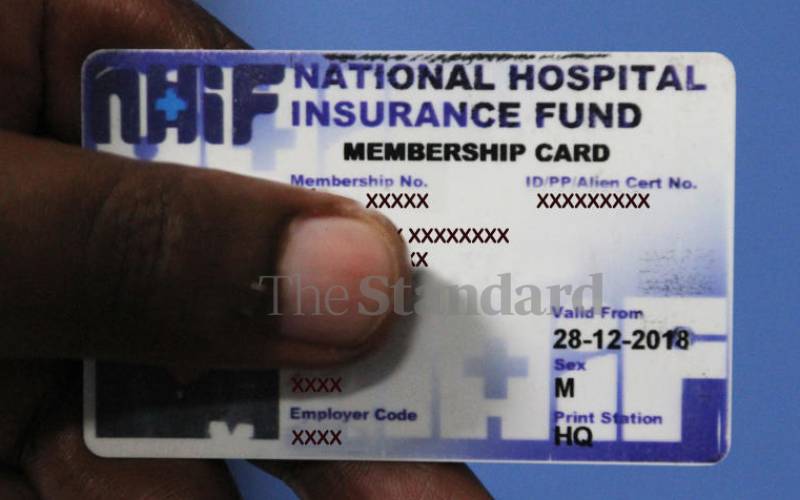×
The Standard e-Paper
Fearless, Trusted News

National Hospital Insurance Fund card. [Elvis Ogina, Standard]
Implementation of the Universal Health Coverage (UHC), one of President Uhuru Kenyatta’s pet projects, will succeed largely through enforcement of mandatory contributions to the public health insurer.